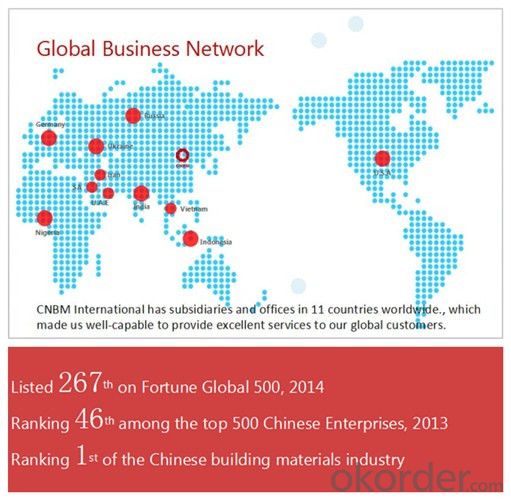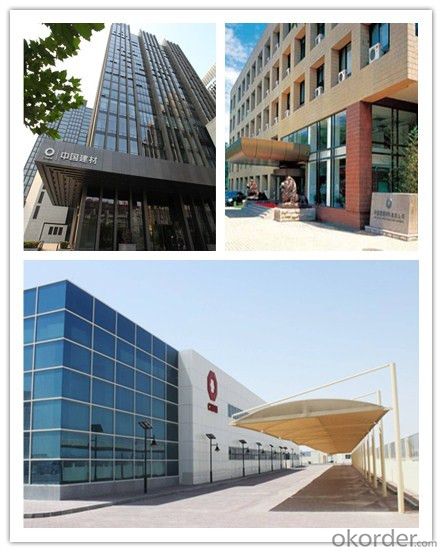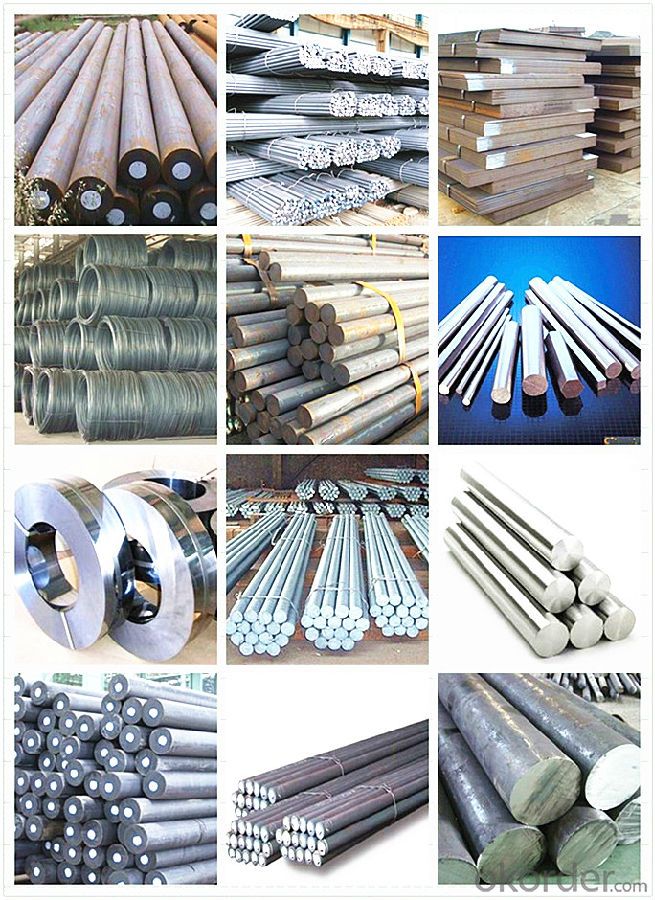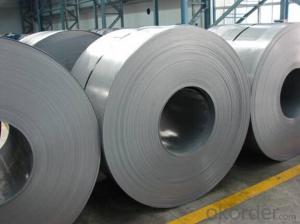Grade JIS G3135-SPFC 340 Galvanized Steel Coil
- Loading Port:
- Tianjin
- Payment Terms:
- TT OR LC
- Min Order Qty:
- 3 m.t.
- Supply Capability:
- 10000 m.t./month
OKorder Service Pledge
OKorder Financial Service
You Might Also Like
Item specifice
Grade JIS G3135-SPFC 340 Galvanized Steel Coil
Specification of Grade JIS G3135-SPFC 340 Galvanized Steel Coil
1. Galvanized Steel Coil
(1) Width: 600-1570mm
(2) Thickness: 0.13-5.0mm
(3) Grade: JIS G3302-SGCC-SGC570, SGCH (full hard-G550), SGHC-SGH540
EN10346-DX51D+Z, DX53D+Z, S250GD-S550GD
ASTM A653-CS-B, SS255-SS550
(4) Zinc Coating: Z40g/m2~Z500g/m2 (both side total coating thickness)
2. Galvalume Steel Coil
(1) Width: 600~1500mm
(2) Thickness: 0.15~2.30mm
(3) Grade: JIS G3321-SGLCC, SGLC400-570, (G550)
EN10346-DX51D+AZ, DX53D+AZ, S250-S550
ASTM A792M CS-B, SS255-SS550
(4) AZ Coating: AZ50~AZ185g/m2
3. Prepainted Galvanized Steel Coil (PPGI)
(1) Width: 600~1250mm
(2) Thickness: 0.19~1.50mm
(3) Grade: JIS G3312-CGCC, CGC340-570, (G550)
ASTM A755M CS-B, SS255-SS550
(4) Zinc Coating: Z40g/m2~Z500g/m2 (both side total coating thickness)
4. Prepainted Galvanized Steel Coil (PPGL)
(1) Width: 600~1250mm
(2) Thickness: 0.20~1.50mm
(3) Grade: JIS G3322-CGLCC, CGLC340-570, (G550)
ASTM A755M CS-B, SS255-SS550
(4) AZ Coating: AZ50~AZ185g/m2 (both side total coating thickness)
5. Cold Rolled Steel Coil (Soft) (for further information, pls click the product name)
(1) Width: 600~1570mm
(2) Thickness: 0.13~2.50mm
(3) Grade: JIS G3141-SPCC-SD, SPCD-SD, SPEC-SD
JIS G3135-SPFC 340/390/440
EN10130-DC01, DC03, DC04
SAE1006, SAE1008
ASTM A424-TypeⅡ
6. Cold Rolled Steel Coil (Full Hard) (for further information, pls click the product name)
(1) Width: 600~1570mm
(2) Thickness: 0.13~2.50mm
(3) Grade: JIS G3141-SPCC-1B, SPCC-1D
7. Hot Rolled Steel Coil
(1) Width: 1000~1524mm
(2) Thickness: 1.20~16.5mm, other thickness can be negotiation
(3) Grade: JIS G3101-SS400, JIS G3132-SPHT1/2/3, ASTM A36, Q195, Q235 etc.
Company Introduction of the Grade JIS G3135-SPFC 340 Galvanized Steel Coil
CNBM International Corporation is the most import and export platform of CNBM group(China National Building Material Group Corporation) ,which is a state-owned enterprise, ranked in 270th of Fortune Global 500 in 2015.
With its advantages, CNBM International are mainly concentrate on Cement, Glass, Iron and Steel, Ceramics industries and devotes herself for supplying high quality series of refractories as well as technical consultancies and logistics solution.


Packaging & Delivery of the Grade JIS G3135-SPFC 340 Galvanized Steel Coil
Packaging Detail | Sea worthy packing /as per customer's packing instruction |
Delivery Detail | 15 ~ 40 days after receiving the deposit |
Products Show:

FAQ:
Are you a trading company or manufacturer? | Manufacturer |
What’s the MOQ? | 3 metric ton |
What’s your delivery time? | 15-35 days after downpayment received |
Do you Accept OEM service? | Yes |
what’s your delivery terms? | FOB/CFR/CIF |
What's the Payment Terms? | 30% as deposit,70% before shipment by T/T |
Western Union acceptable for small amount. | |
L/C acceptable for large amount. | |
Scrow ,Paybal,Alipay are also ok | |
Why choose us? | Chose happens because of quality, then price, We can give you both. Additionally, we can also offer professional products inquiry, products knowledge train (for agents), smooth goods delivery, excellent customer solution proposals. |
What's your available port of Shipment? | Main Port, China |
What’s your featured services? | Our service formula: good quality+ good price+ good service=customer's trust
|
Where are your Market? | Covering more than 160 countries in the world |
- Q:Can special steel be used for making nuclear industry components?
- Yes, special steel can be used for making nuclear industry components. Special steel, also known as stainless steel, possesses excellent corrosion resistance, high strength, and heat resistance properties, making it suitable for various applications in the nuclear industry. It is commonly used for manufacturing reactor vessels, steam generators, fuel cladding, and other critical components that require durability and reliability in nuclear power plants.
- Q:How does special steel contribute to the manufacturing of cutting tools?
- Special steel plays a crucial role in the manufacturing of cutting tools due to its unique properties and characteristics. Firstly, special steel, also known as tool steel, exhibits high hardness, which allows it to withstand the tremendous forces and stress exerted during cutting operations. This hardness prevents the cutting tools from deforming or wearing out quickly, ensuring their longevity and efficiency. Additionally, special steel possesses excellent wear resistance. Cutting tools are subjected to constant friction and abrasion while in use, and the high wear resistance of special steel helps to minimize the wear and tear on the tools. This, in turn, leads to improved tool life, reducing the frequency of tool replacements and enhancing cost-effectiveness in the manufacturing process. Furthermore, special steel offers superior heat resistance. Cutting tools generate significant heat during machining operations, which can lead to thermal degradation and loss of hardness in conventional steels. However, special steel can withstand high temperatures without compromising its hardness and integrity. This heat resistance allows cutting tools to maintain their performance even under extreme heat conditions, ensuring consistent and precise cutting results. Moreover, the special steel used in cutting tool manufacturing often exhibits excellent toughness and strength. This enables the tools to endure heavy loads and impacts without fracturing or chipping. The combination of hardness, wear resistance, heat resistance, toughness, and strength provided by special steel ensures the durability and reliability of cutting tools, allowing them to perform efficiently and accurately. Overall, special steel significantly contributes to the manufacturing of cutting tools by providing the necessary properties to withstand the demanding conditions encountered during cutting operations. Its high hardness, wear resistance, heat resistance, toughness, and strength ensure that cutting tools remain sharp, durable, and efficient, thereby enhancing productivity and precision in various industries, such as automotive, aerospace, and manufacturing.
- Q:Is special steel suitable for manufacturing precision components?
- Yes, special steel is indeed suitable for manufacturing precision components. Special steel possesses unique properties such as high strength, wear resistance, and excellent dimensional stability, making it ideal for producing components with precise and intricate designs. Additionally, its superior machinability and ability to withstand extreme conditions further enhance its suitability for manufacturing precision components.
- Q:How is corrosion-resistant steel different from regular steel?
- Corrosion-resistant steel, also known as stainless steel, is different from regular steel because it contains a higher proportion of chromium and other alloying elements. These elements form a protective layer on the surface of the steel, preventing it from rusting or corroding when exposed to moisture or aggressive environments. Regular steel, on the other hand, lacks this protective layer and is more prone to rust and corrosion.
- Q:What are the different methods of surface hardening for special steel?
- Special steel can be surface hardened using various methods. These methods comprise: 1. Carburizing: By subjecting the steel to a carbon-rich environment, such as gas or liquid, carbon atoms can infiltrate the steel surface. This results in enhanced surface hardness and wear resistance. 2. Nitriding: Steel is heated in an environment rich in nitrogen, causing nitrogen atoms to permeate the surface. This creates a durable, wear-resistant outer layer. 3. Induction hardening: By passing an alternating current through a coil, a magnetic field is generated, inducing electrical currents in the steel. The resistance to these currents generates heat, leading to high surface temperatures and rapid quenching, ultimately increasing hardness. 4. Flame hardening: The steel surface is heated using a flame or oxy-fuel torch, followed by quenching in water or oil. The swift cooling from elevated temperatures facilitates surface hardening. 5. Laser hardening: Laser beams are employed to rapidly heat a specific area of the steel surface, which is then promptly cooled with a coolant. This localized heating and cooling process enhances the hardness of the treated region. 6. Plasma nitriding: Steel is placed in a low-pressure plasma chamber, where nitrogen ions bombard the surface, facilitating nitrogen diffusion and the formation of a hardened layer. Each method offers distinct advantages and is suitable for diverse applications and types of special steel. The selection of a surface hardening method depends on factors such as desired hardness, dimensional limitations, and specific application requirements.
- Q:What are the different methods of surface ion nitriding for special steel?
- There are several methods of surface ion nitriding for special steel, including traditional gas nitriding, plasma nitriding, and ion nitriding. Each method involves introducing nitrogen ions into the surface of the steel to improve its hardness, wear resistance, and corrosion resistance. Gas nitriding involves exposing the steel to ammonia gas at high temperatures, while plasma nitriding uses a low-pressure plasma to generate nitrogen ions. Ion nitriding, on the other hand, utilizes a high-voltage electrical discharge to create the nitrogen ions. Overall, these methods offer various options for enhancing the surface properties of special steel, depending on the specific requirements and desired outcomes.
- Q:What are the main applications of special steel in the chemical industry?
- Special steel is extensively used in the chemical industry for various applications. Some of the main applications include the manufacturing of storage tanks, pipelines, and equipment that require resistance to corrosion, high temperatures, and pressure. Special steel also finds use in the production of catalysts, which are vital for many chemical processes. Additionally, it is employed in the construction of reactors, heat exchangers, and other critical components that require exceptional durability and reliability in harsh chemical environments.
- Q:Can special steel be used for tooling applications?
- Yes, special steel can be used for tooling applications. Special steel alloys possess unique properties such as high strength, wear resistance, toughness, and heat resistance, making them suitable for tool manufacturing in various industries such as automotive, aerospace, and manufacturing. These tooling applications include molds, dies, cutting tools, and precision instruments, where the use of special steel ensures the durability and performance required for demanding operations.
- Q:How does special steel perform in impact loading conditions?
- Special steel is known for its exceptional performance in impact loading conditions. Due to its unique composition and manufacturing process, special steel exhibits remarkable strength, toughness, and resistance to deformation. When subjected to impact loading, special steel can effectively absorb and dissipate the energy generated, minimizing the risk of catastrophic failure or damage. The high strength of special steel allows it to withstand high impact forces without undergoing significant deformation or fracture. This characteristic makes it particularly suitable for applications where impact loading is prevalent, such as in the construction of heavy machinery, automotive components, and structural elements. Special steel's toughness is another crucial factor in its performance during impact loading conditions. It possesses excellent fracture toughness, enabling it to resist crack propagation and absorb impact energy without fracturing. This property ensures that special steel can withstand sudden and severe impacts without compromising its structural integrity. Additionally, special steel is often treated to enhance its resistance to impact loading conditions further. Processes such as heat treatment, forging, and quenching and tempering can increase the material's hardness and strength, making it even more capable of withstanding impact forces. In summary, special steel performs exceptionally well in impact loading conditions due to its high strength, toughness, and resistance to deformation. Its ability to absorb and dissipate energy efficiently, coupled with its resistance to fracture, makes it an ideal choice for applications where impact loading is a concern.
- Q:What are the different certifications available for special steel?
- There are several certifications available for special steel, including ISO 9001, ISO 14001, ISO/TS 16949, and AS9100. These certifications ensure that the steel meets specific quality standards, environmental management practices, automotive industry requirements, and aerospace industry standards, respectively.
1. Manufacturer Overview |
|
|---|---|
| Location | |
| Year Established | |
| Annual Output Value | |
| Main Markets | |
| Company Certifications | |
2. Manufacturer Certificates |
|
|---|---|
| a) Certification Name | |
| Range | |
| Reference | |
| Validity Period | |
3. Manufacturer Capability |
|
|---|---|
| a)Trade Capacity | |
| Nearest Port | |
| Export Percentage | |
| No.of Employees in Trade Department | |
| Language Spoken: | |
| b)Factory Information | |
| Factory Size: | |
| No. of Production Lines | |
| Contract Manufacturing | |
| Product Price Range | |
Send your message to us
Grade JIS G3135-SPFC 340 Galvanized Steel Coil
- Loading Port:
- Tianjin
- Payment Terms:
- TT OR LC
- Min Order Qty:
- 3 m.t.
- Supply Capability:
- 10000 m.t./month
OKorder Service Pledge
OKorder Financial Service
Similar products
New products
Hot products
Related keywords

































